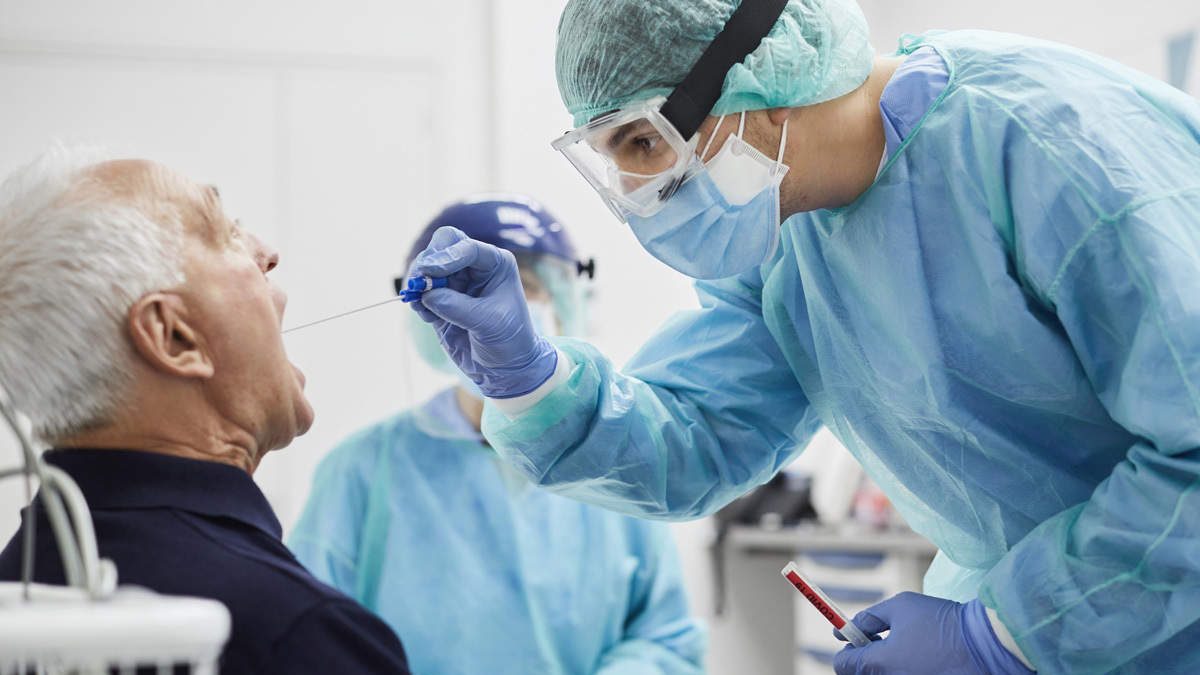Detecting the virus that causes COVID-19 and identifying people with the disease are critical to protecting public health. There are many different tests to help diagnose and identify this illness.
Molecular tests, such as PCR, look for the COVID virus’s genetic material, called RNA. They tend to be more sensitive than antigen tests.
Viral Tests
There are several viral tests used in Covid testing San Antonio. These include PCR (polymerase chain reaction) and antigen tests.
PCR: This test works by heating and cooling sample samples to amplify the virus’s genetic material. It’s fast and does not require special equipment.
A negative PCR test result means you probably haven’t had an infection with SARS-CoV-2 at the time of your sample collection. However, you can still get reinfected within 90 days after being infected with SARS-CoV-2.
An antigen test, also called a rapid test, looks for certain protein fragments on the surface of the virus. These fragments are found in nose and throat secretions collected by a nasal swab.
These tests give results more quickly than PCR tests. However, they are not as sensitive as PCR tests, and they can sometimes give false results (false negatives or false positives).
Molecular Tests
Molecular tests detect the genetic material of the virus, which allows them to detect even small amounts of the virus. They include polymerase chain reaction (PCR), loop-mediated isothermal amplification (LAMP), and clustered, regularly interspaced short palindromic repeat (CRISPR)-based assays.
These tests are the most accurate for determining whether or not you have COVID-19 infection. They can be used whether you have symptoms or not and can be given with nasal swabs or saliva.
Accuracy: False negative results are relatively rare, but they can happen if you have not reached peak infection or if your sample isn’t very good. They’re not recommended for screening asymptomatic people, but they can be used to make a diagnosis in symptomatic people in the first five days of symptoms.
Antigen tests detect proteins on the surface of the virus, or inside it, that can help distinguish COVID-19 from other viral infections. They’re fast, inexpensive, and efficient. They’re FDA authorized for emergency use, and some are available at home.
Antigen Tests
Antigen tests rely on proteins from the SARS-CoV-2 virus that bind to antibodies in the body. These antibodies then trigger a color change in the test strip.
They may use samples taken from a person’s nose (nasopharyngeal swabs) or mouth (sputum/saliva collection cups). These tests are usually quick, inexpensive, and easy to perform.
In addition to being more convenient than molecular and antibody tests, antigen tests are also more likely to produce immediate results. That can be useful in settings where testing is needed quickly, such as correctional and detention facilities, nursing homes, and homeless shelters.
Some antigen tests can also be used as screening tests in asymptomatic people who are at risk for infection. However, their clinical performance is still not clear and depends on the circumstances in which they are used. It is important to consider the context of use, including the timing of testing and sensitivity of the results.
Screening Tests
In addition to molecular tests and antigen testing, there are other types of diagnostic tests used in COVID-19 testing. These include lateral flow antibody tests (LAMP) and real-time polymerase chain reaction (PCR) assays.
These are simple laboratory techniques that detect a patient’s immune response to SARS-CoV-2 by detecting antibodies in their blood. This technique can be completed very quickly and cheaply.
It can also be used to diagnose current infections or to check for previous infection in vaccinated individuals.
However, RT-PCR can be susceptible to false-negative results as it only identifies COVID-19 if the specimen was collected 2-8 days after the onset of symptoms or contact with the virus.
As a result, FDA has developed a supplemental template that streamlines the path to Emergency Use Authorization for point-of-care (POC) and at-home COVID-19 antigen tests used in serial screening of asymptomatic individuals. According to Jeffrey Shuren, MD, director of the Center for Devices and Radiological Health, and Timothy Stenzel, MD, PhD, director of the Office of In Vitro Diagnostics at CDRH, FDA sees this streamlined approach as a way to support the serial testing strategy recommended by the US Centers for Disease Control and Prevention (CDC).
Related posts
Recent Posts
- The Future of Fax: the Latest Features and Innovations in Fax Apps March 31, 2024
- Essential Tax and Accounts Support in Seattle March 26, 2024
- Gum Grafting To Reclaim Your Smile Aesthetics March 14, 2024
- Enhancing Industrial Automation with VTScada Software March 8, 2024
- Coyote Hunting in Different Seasons: Strategies for Spring, Summer, Fall, and Winter March 7, 2024
- Game on- Sports stars and fan spirit slot games February 28, 2024
- Customizing Accounting Solutions: CPAs as Tailors of Financial Success in Brunswick, OH February 14, 2024
- Efficient and Stress-Free Commercial Moves with Professional Movers February 9, 2024
- Pelican Cases for Tactical Gear: A Must-Have for Every Operator February 8, 2024


